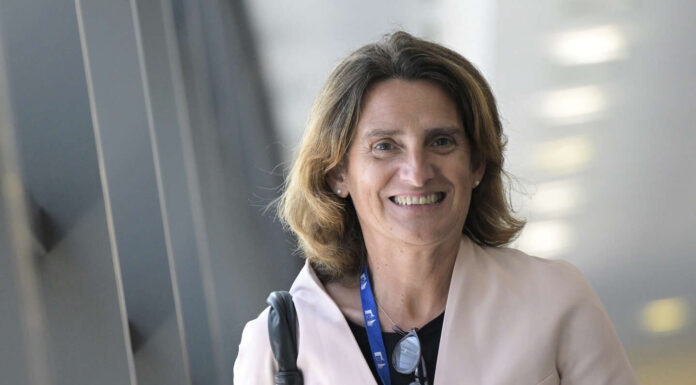EU resources are under strain, given the need to invest in defence, climate change and a possible expansion to Ukraine.
The EU may need a bigger budget as it fronts up to problems including aid to Ukraine and investment in the military, a senior official said at a conference in Brussels today (29 April).
Brussels’ existing budget comes to just over €1 trilllion, and the Commission is due in June of next year to come out with its plans for the next seven-year period ending in 2034.
There should be a “budget matching our ambition for a stronger, more competitive and secure Europe,” EU Budget Commissioner Johannes Hahn said.
“We should avoid getting stuck into the obsession that the budget cannot exceed 1% of EU GNI [Gross National Income],” Hahn added. “Once we are clear and agree on our common priorities, we need to have sufficient funds to cater for common needs.”
Existing rules cap the bloc’s central budget at around one hundredth the size of its overall economy – amounting to about €170 billion per year, of which almost a third is spent on farm subsidies and other elements of the bloc’s Common Agricultural Policy.
Many EU members are also seeking to boost defence spending given the war in Ukraine, and the relatively poor and agriculture-heavy eastern nation is also seeking to join the bloc – something that could cost the EU budget around €136 billion over the next seven years, according to the think tank Bruegel.
The EU agreed what Hahn called the “biggest stimulus package in our Union’s history” during the pandemic – but there’s less consensus on how to repay hundreds of billions in common EU borrowing generated from the programme dubbed Next Generation EU.
Plans to raise new EU forms of revenue, based on company profits or green levies, haven’t got off the ground, in part due to taxation being a national prerogative – and that suggests Brussels’ future demands will have to be financed by member states writing still bigger cheques.
Yet many of those EU countries themselves face rocketing budget deficits, and are being pressured by Brussels to bring them back under control after years of pandemic-era laisser-faire.
Hahn cited ways EU investment can aid longer-term growth – such as a reform of labour markets in Spain, and helping to clear an Italian judicial backlog that was hampering business investment.
The commissioner also said he’d like to see a more streamlined and simplified budget rather than a multitude of often overlapping programmes – but there’ll also likely be calls for EU money to come with extra strings attached.
“When we allocate resources, it is essential that our budget actively reinforces the core values that define us,” Belgian foreign minister Hadja Lahbib said at the event, adding there had been “significant progress in recent years” in safeguarding democracy, rights and the rule of law via EU financing tools.
This was likely a nod to recent controversies in Poland and Hungary, where the EU initially withheld significant funds amid concerns over democratic backsliding and judicial independence.
The importance of Brussels’ significant pot of cash is certainly drawing attention from national leaders – including Croatian premier Andrej Plenković, sometimes tipped as rival to incumbent president Ursula von der Leyen when a new Commission is installed in the autumn.
“We should explore the possibility of having a more ambitious budget,” Plenković told conference attendees. “The future of the budget is the future of the Union.”
Portuguese foreign minister Paulo Rangel put the case for expanding Brussels’ resources more succinctly.
“If you don’t increase it, the EU will die,” Rangel said.













